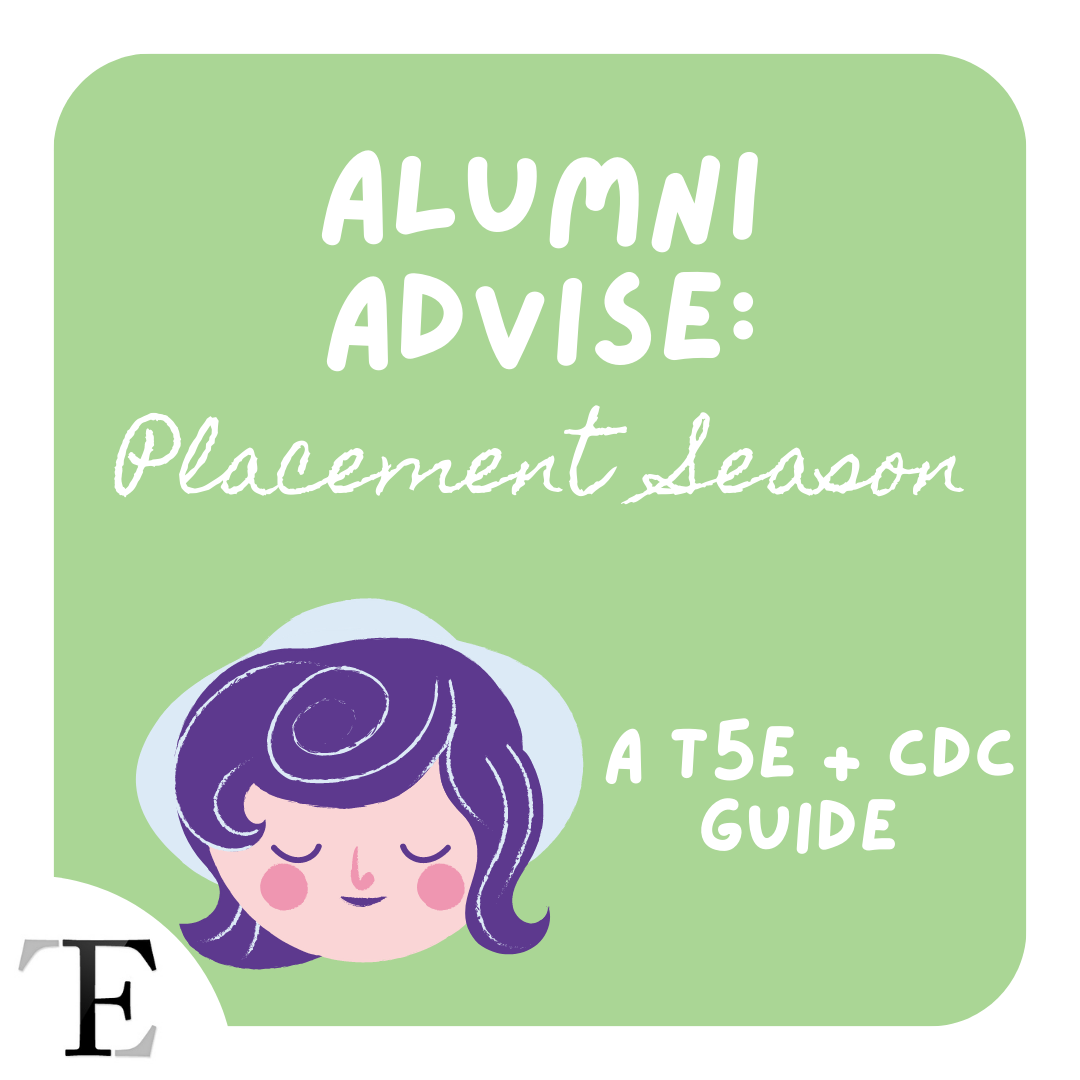Editor: S Vishal
Design: Shaurya Rawat
It is an ordeal that encompasses a tumultuous range of emotions. No kidding. It is dauntingly fraught and tedious enough for you to be oblivious of sweat sliding down the side of your face. And yet, for the majority, the exhilaration seems to shadow every other emotion.
Viva Voce is the pinnacle of the research journey of any scholar. It is an oral test faced by a PhD scholar where his/her thesis is cross-examined by a panel of accomplished academics. A successful defence signifies the satisfactory end to the PhD journey.
Most research scholars working on their dissertation or thesis tend to agree that despite their entire journey being time-consuming, tedious, and sometimes quite perplexing, it is worth every additional second, minute and hour spent late nights in the labs – pushing and trudging to the close. This might sound slightly flustering and a tad bit melodramatic for an outsider, or someone planning to take up research in the near future, but this statement is- by no means, an understatement.
Galileo Galilei gave us, “Passion is the Genesis of Genius”, and this can pretty much sum up the source of will and desire for research scholars to persevere in their fields.
Since COVID-19 seems to have rampantly razed to ground everything about life as we knew it, not surprisingly, it has also interfered in the lives of the research scholars all around the world.

The much-awaited and (yet nerve-wracking) ‘Viva Voce’ of their thesis/dissertation defence too, was engulfed by the virtual world.
So, what is a virtual defence? Abrar Khan, a research scholar in the Department of Biotechnology, quite eloquently described it:

“A virtual defence basically employs an online platform to connect the examiners and the doctoral committee members with the candidate without physical interaction. This enables the candidate to present his thesis findings and defend his findings from anywhere in the world.”

Sounds fairly uncomplicated, spare the obvious nuisances brought on by a possible disruptive net connectivity, right? Given the significance of this ‘One Webinar to Rule them All’ scenario, all the candidates, rightfully so, made arrangements for having backups of backups. Anuja Sethia, a research scholar from the Department of Management Studies recommends having two laptops all charged up, the power sources and two separate internet connections on standby:
“It was the first webinar I’ve ever had to attend, although I’ve been to a lot of physical seminars. So, the apprehensions were quite naturally there, and thus, I tried to meticulously arrange for dealing with any unforeseen technical issues that may arise due to network problems or laptop glitches. “
Despite the scrupulous planning, Anuja faced approximately a 30-second power cut during her questioning and feedback session which halted her communication. This led her to panic due to the belief that the examiners might evaluate this as a hiccup on her part for fumbling with the answers when it was certainly not so!
BR Madhusudhan, a scholar from the Department of Civil Engineering, agrees that:
“The chances of misunderstanding is quite high on both sides.” Due to delay in the transmission of audio/video, the examiner might find it harder to keep track of the presentation flow and the scholar might misinterpret the question posed.
It wasn’t just the net glitches that vexed the already tense and apprehensive scholars. Most of them concur that there were quite a few bottle-necks during the presentation. Abrar recounts that every time someone wished to join his Google Meet, the prompt of permission for entry disrupted his flow!
The biggest solace in this ordeal for any research scholar who has worked in a lab atmosphere among his lab mates, peers, guides and mentors, is their physical presence as a source of some comfort and calm. This was a void prompted in their journey by COVID-19. Abrar states,
“The virtual defence denies us the necessary exposure and satisfaction of an offline conventional PhD defence. The candidate may feel disconnected from the examiners and attendees.”
Anuja believes that this was the most perplexing part of her defence.
She missed people- their physical presence, and the encouragement it provided when you see them nodding and gesturing in agreement or disagreement. It proved to be very difficult to access the reaction of the attendees and the examiners to the responses in the presentation.
It is a major lapse and a heavy impediment.
Madhusudhan adds, “We cannot make out the intent of the examiner, although the question may appear grammatically and technically correct. Reading the face of the examiner can greatly contribute to a better comprehension of the question.”
It was quite disheartening for scholars to not share their success, happiness and even with their lab mates and guide during the online defence proceedings. Generally, offline PhD defence sessions are followed up by lunch with the examiners/guide or lab mates- who supported and helped them throughout your PhD journey.
Although, BR Madhusdhan tends to feel a bit differently on this issue, “In my case, it did not really matter much. I never derived any help from lab mates nor the lab atmosphere. It is highly independent research that I pursue.”
The abrupt closure of insti too, considerably impacted the homestretch in their journey.
For Abrar, there was an initial hindrance in his thesis submission proceedings as there was an inordinate delay in approval and confirmation of his thesis review. However, once the thesis-submission procedures and documentation became streamlined, the thesis review and scheduling of the defence was fast-tracked.
All the cons aside, a virtual defence does offer some perks.
The scholars could battle stage fright and vulnerability within the comforts of home and the warmth of family. Madhusudhan believes that the virtual presentations allow the convenience of having several resources at the time of the presentation that you don’t really have access to in a physical seminar. In fact, Anuja Sethia recommends the virtual defence as an option to be made viable even in the post COVID era. Abrar believes that the online platform also gave him an opportunity to invite his friends and family from all over India and the other parts of the world to attend his defence.
To conclude with Madhusudhan leaves us with a very pragmatic thought-
“All COVID-19 does is present us with new experiences.”
And thus, it is up to us to interpret it appropriately as an opportunity or as a challenge. We have to learn to adapt and to evolve.
And this has to be the biggest lesson learnt in the pandemic 2020.
A huge thanks to Dr. Abrar from Biotech, Dr. Anuja from DoMS, and Dr. Madhusudhan from Civil Engineering for enthusiastically discussing their Viva Voce journey with us. We wish them the very best for all their future endeavours!
Also special thanks to our Research Affairs Secretary, Rohit for guiding us in the ideation of the article.
This article is a part of Research Series where we deal with themes involving the lives of research scholars. Comments and suggestions are always welcome, you can send them to us at [email protected].





